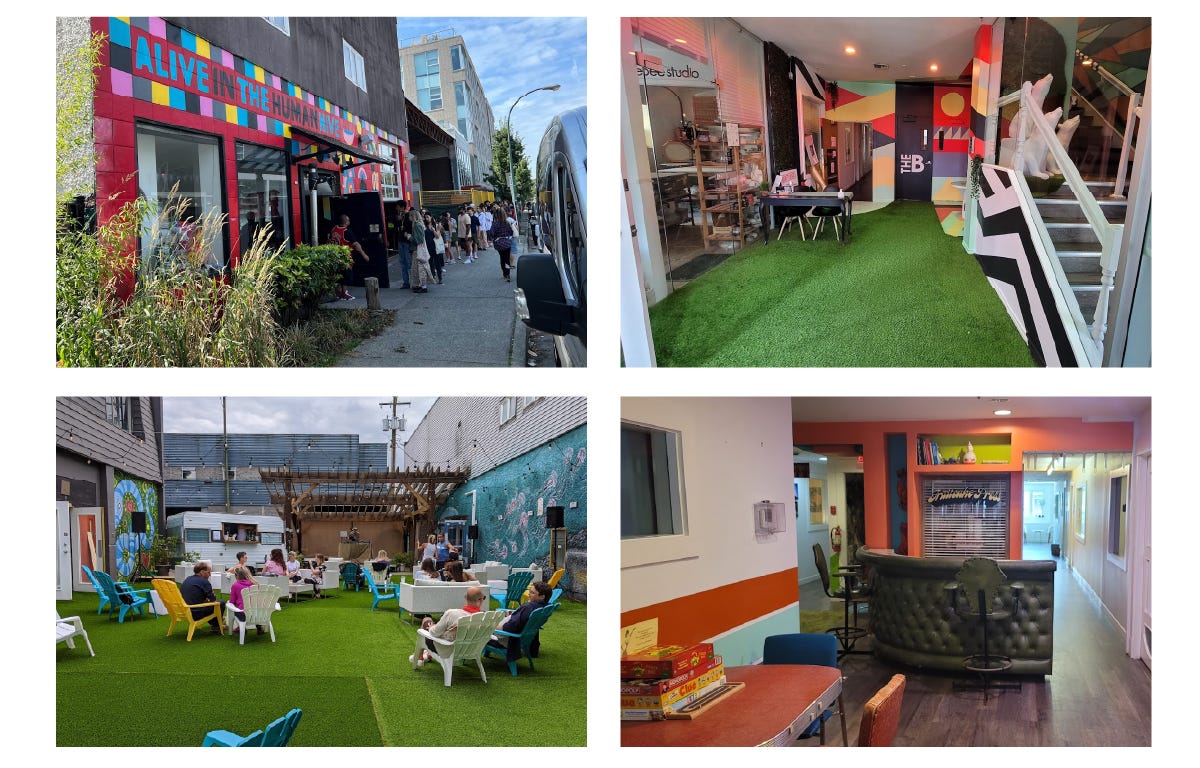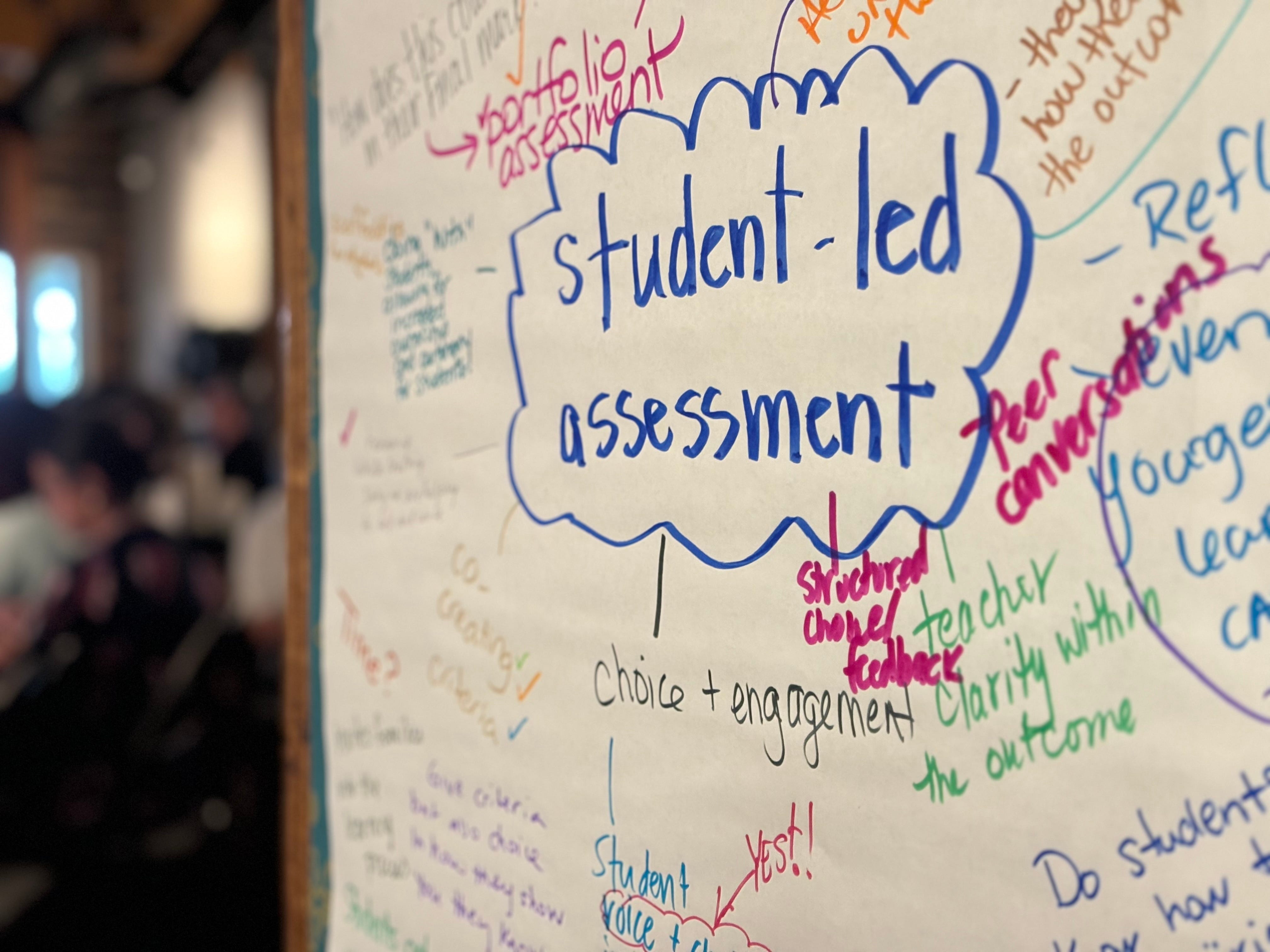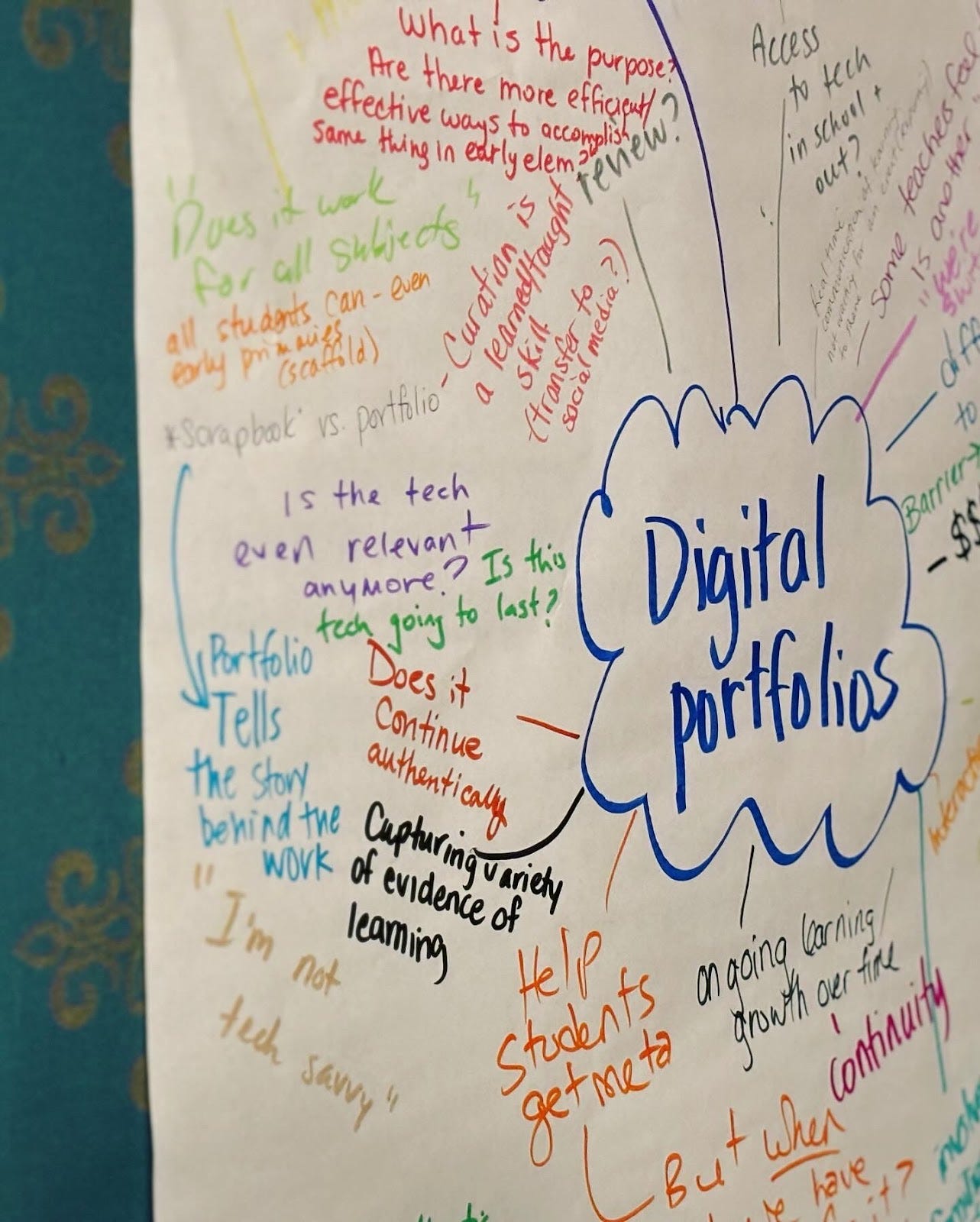When Jani and I arrived at The Beaumont Studios last week for the 2024 Empowerment Ecosystem Summit, we could tell it was going to be different from other education events we’ve attended. As a hub for artists, designers, and other creative professionals, the colourful space certainly inspired creativity. Walking in already felt like a memorable experience compared to your standard conference room. After being warmly greeted by one of the hosts, we walked into the main hall where the instructions, “Have a seat anywhere, but don’t get too comfortable (we’ll be moving around soon),” were projected across the wall. As an introverted extrovert, I began to feel a little apprehensive among the 60+ participants in the room. Thankfully, the art-filled venue kept me distracted enough and provided an ideal backdrop for our discussions on storytelling and assessment over the next two days.

What’s an Empowerment Ecosystem Summit? 🤔
The summit was all about crafting a unique voice to help affect change around assessment in schools. The organisers described it as “a gathering for educational leaders to build community, interrogate antiquated practices, and amplify their story as a vehicle for change.” A key theme was using personal narratives as tools for change, highlighting the transformative power of storytelling in education. Count us in!
Summit organisers Natalie Vardabasso, Katie White, and Tom Schimmer promoted the event as “not your typical conference.” Instead of a keynote speaker, the hosts took on the roles of storytellers, sharing learning experiences that would serve as catalysts for participant dialogues. They called on us to craft our own narrative termed the “Story of Self,” where we questioned what called us to be active in the education community in the first place. Tom shared how he changed from being a “hardcore grader” docking points for late assignments, into breaking traditions and finding ways to include story as assessment (you can hear from Tom himself here).
We then moved on to the "Story of Us," where we explored common values and goals within our educational communities. Through one-on-one and small group conversations, we identified barriers to change and how our collective stories could help overcome them. As a team, we already knew that change doesn’t happen in schools simply because it is mandated. Stories of challenges and success are at the heart of what drives school cultures to grow.
Connecting Storytelling to Assessment 🔀
The assessment topics we explored were chosen by the participants via an online poll. They ranged from:
- Outcomes-based Assessment 🖼️
- Writing Descriptive Feedback ✍️
- Professional Judgement/Triangulation 🧑⚖️
- Digital Portfolios 📸
- And More! 😁
What was important here was how we examine our own stories and incorporate them into our teaching practice, and how we can frame assessment through the lens of storytelling. With digital portfolios, for example, we discussed how students can tell the story of their school year, linked with evidence of their learning.


Sharing Stories of Our Own 📖
By the end of the two days, we reached the "Story of Now." Here we envisioned the future we wanted to create and discussed the shifts we needed to make to our assessment practices. As we shared our journeys with one another, we considered the best platforms for sharing these stories to create impact. Would we retell them at staff meetings, professional development sessions, in a podcast, on social media, or in casual one-on-one conversations with colleagues? Change, after all, usually starts small… and with a good story. 😉
As for our own stories, Jani shared his experience as an English-language learner in ninth-grade English class. Seeing his work written up in red pen highlighting all his needed corrections was demotivating, especially after repeatedly receiving F’s! Only after Jani approached his teacher did they come to a shared understanding and find a solution that met learning targets and reflected Jani’s personal growth. If this wouldn’t have happened, Jani most likely would’ve continued telling himself the story, “I’m not good at English.” This experience always stuck with him as an example of why we need to do more to find differentiated ways to support diverse learners and teach them to advocate for themselves.
Sharing is Caring 💞
During the summit, we felt truly connected to a community of like-minded educators who were just as passionate about making a difference in their schools as we are. And we felt incredibly validated about the work we do at Classmate.
While we usually highlight teacher stories and showcase successful projects, as a team working in the field of education for over ten years, we certainly have a lot more to share around our own experiences in schools. Consider that when teachers want to inspire change in their school, it involves teaching adults a new way of doing something — and our team has a lot of experience doing just this.
In case you can’t tell, we were quite inspired by the summit. If you want to find out more, visit the Empowerment Ecosystem Summit website, and be sure to check out the work of the hosts. Natalie, Katie, and Tom all have books and podcasts that you can check out if you want to join this movement and leave antiquated assessment and grading practices behind!
- Natalie Vardabasso | X @natabasso | Instagram @natbasso
- Katie White | X @KatieWhite426 | Instagram @softedgedlearning
- Tom Schimmer | X @TomSchimmer | Instagram @tomschimmer | Youtube @tomschimmerpodcast8012
The Storyteller in All of Us 🎭
Zach King may be a filmmaker and social media star, but he’s always been a storyteller at heart which is evident in a lot of the work he puts out! Check out his TED talk, “The Storyteller in All of Us”.

